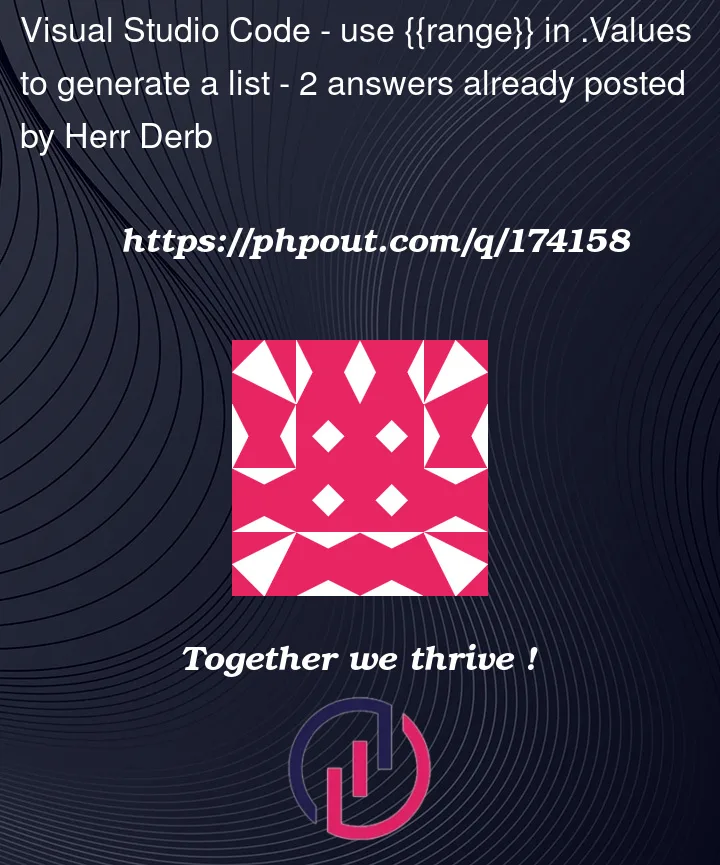In helm I have the following .Values
mqtt:
topics:
- /tenant/+/#
- /otherStuff/
- /importantStuff/
tenants:
- id: tenantA
name: Tenant A
- id: tenantB
name: Tenant B
Instead of the wildcard topic /tenant/+/# I reather would like to have the topics tenant specific:
/tenant/tenantA/#/tenant/tenantB/#
So I tried what would make sense to me should work:
mqtt:
topics:
{{- range .Values.tenants }}
- /tenant/{{ .id }}/#
{{ end }}
- /otherStuff/
- /importantStuff/
This leads to multiple errors
A block sequence may not be used as an implicit map key
Implicit keys need to be on a single line
Implicit map keys need to be followed by map values
While not completly understanding the errors, it seems to me that this approach does not work or I am doing something completely wrong.
How can I loop in my .Values over a range and generate to generate a list?
Helm Playground (Actually shows a different error as visual studio code does, but probably the same lead)




2
Answers
Helm doc
values.yaml
output
Helm doesn’t allow this. The contents of
values.yamlmust be a flat YAML file, and no templating is applied to it.Helm – Templating variables in values.yaml addresses a simpler case of this for simple strings using the Helm
tplfunction to render a string. You could do that here, but it’s trickier: thevalues.yamlvalue must be a string, and you’ll have to ask Helm to parse the result oftplwithfromYaml.